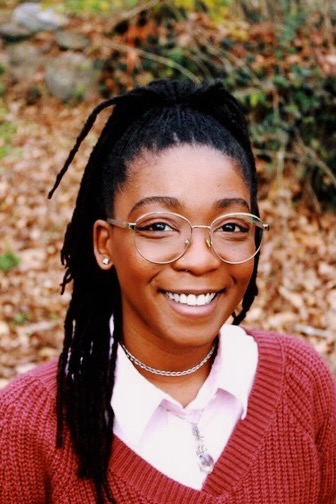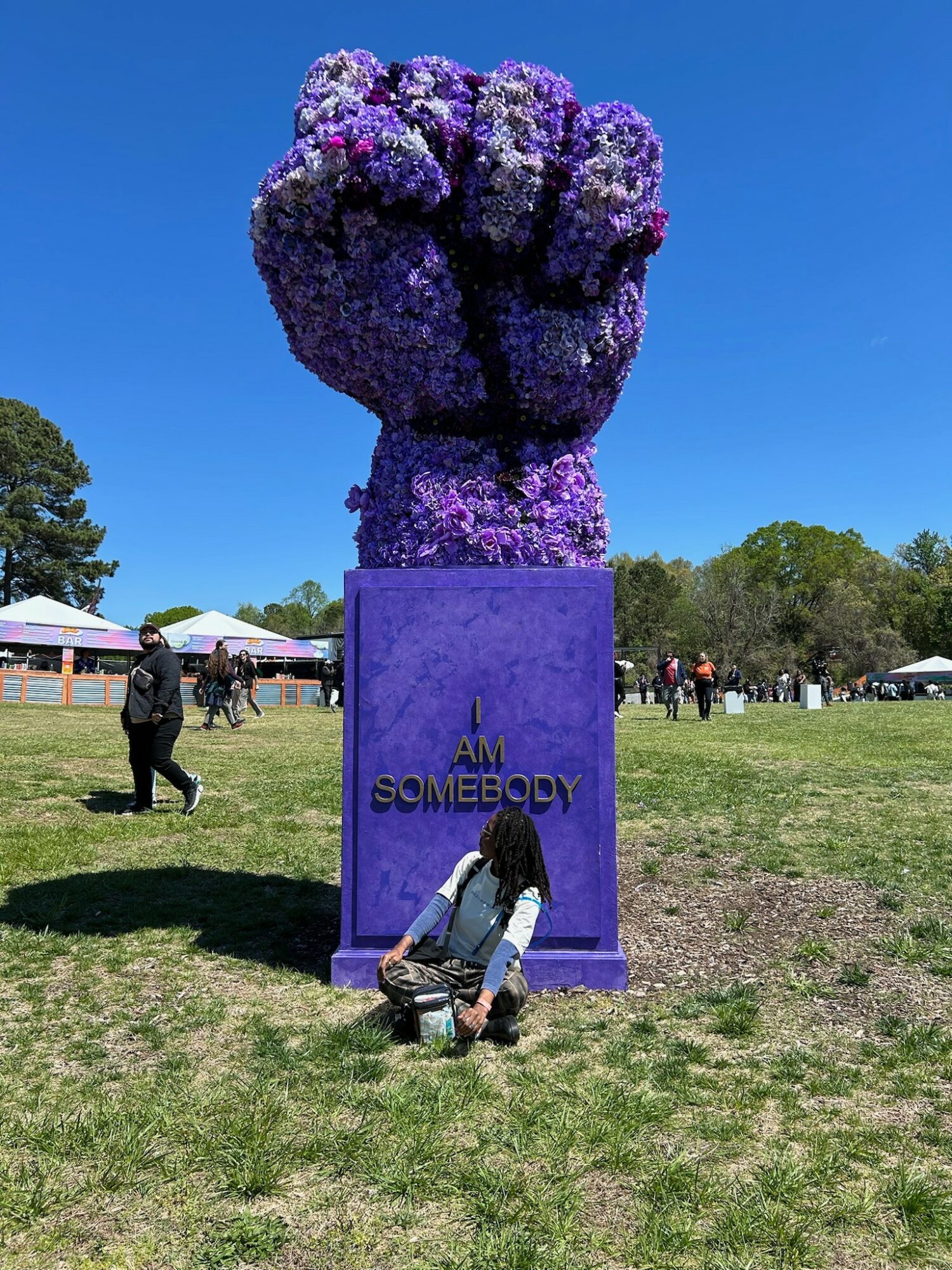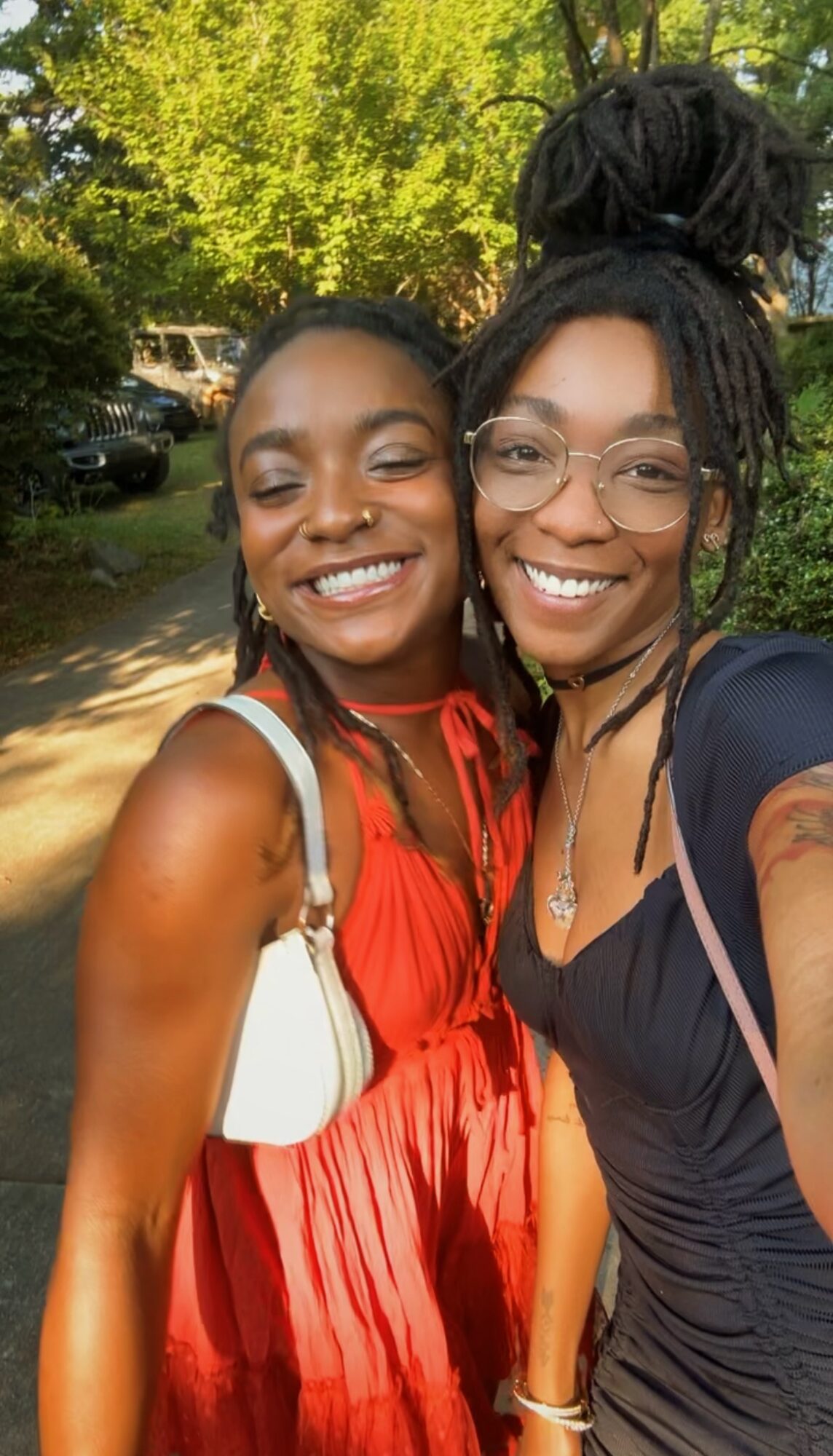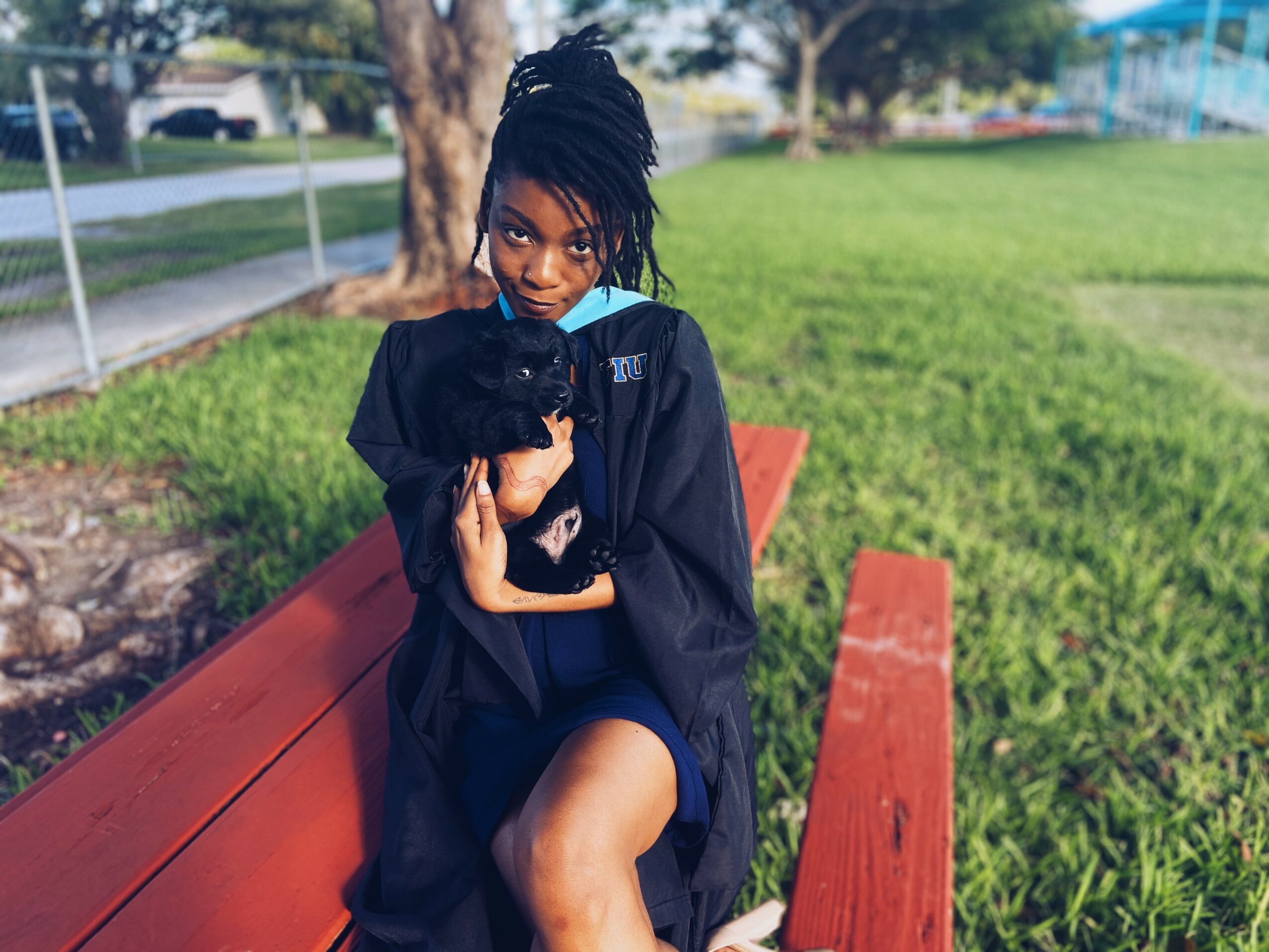

Today we’d like to introduce you to Tai “T” Dyer
Hi T, please kick things off for us with an introduction to yourself and your story.
My journey into mental health care began with my own experiences growing up in a Jamaican-Trinidadian household in Miami. Navigating multiple cultural identities, along with my self-expression and sexuality, while trying to fit into the American culture of Miami-Dade County, was challenging. I struggled with what I now understand as inattentive ADHD, anxiety, and bouts of depression. Though I had difficulty expressing my feelings, I excelled academically, becoming hyper-independent and a perfectionist. During high school, my struggles intensified, with periods of cycling depression, high-functioning anxiety, and the pressures of perfectionism. Fortunately, I found support through my school’s social worker, who helped me navigate these challenges and guided me toward unlearning harmful behaviors while advocating for my needs. This experience was pivotal, inspiring my passion for supporting others in finding their authentic selves and building resilience. It led me to pursue a career as a trauma therapist, hoping to give back to the community and help others on their path to healing. My journey to becoming a licensed therapist started with AP Psychology and dual enrollment courses. I went on to study clinical psychology at the University of Central Florida, with minors in sociology and crime, law, and deviance, graduating in the summer of 2017. I dreamed of opening my own practice and becoming a professor, which drove me to pursue a master’s degree in counselor education at Florida International University, specializing in mental health. I graduated in December 2020 with a 3.9 GPA, after completing an internship focusing on developmental, relational, and sexual trauma. Seeking to expand my expertise, I obtained specialized training in Trauma Incident Reduction Therapy, TF-CBT, and CPT, making me not just trauma-informed but trauma-competent. I work with my own therapist to cont to do the necessary work to able to uphold my standard of wellness, model to my clients healthy habits and stay ethically sound. I believe eery therapsit needs their own therapist, it is a form of self care.
As a new therapist, I recognized the need for inclusive, affirming care that genuinely addresses the unique challenges faced by BIPOC and LGBTQ+ communities. I spent two years working in residential and PHP/IOP care, where I gained experience in crisis intervention, harm reduction, and medication management. During this time, I noticed the absence of somatic, movement-based, and holistic practices in traditional talk therapy. This realization motivated me to establish Mentally Flourishing, a hybrid walk-and-talk private practice based in Georgia, with services available via telehealth to clients in Florida and South Carolina. My practice integrates trauma-competent care, gender-affirming therapy, and holistic methods like meditation, breathwork, and somatic movement. By combining these approaches with methodologies such as ACT for ERP, Brainspotting, and DBT, I help clients reconnect with their bodies, release trauma, and regain a sense of empowerment. Over the years, I’ve developed extensive experience working with individuals experiencing gender dysphoria, developmental and relational trauma, PTSD, C-PTSD, OCD, BPD, mood and anxiety disorders, and supporting individuals and couples in sex, kink, polyamorous, and non-monogamous relationships. Beyond therapy, my commitment to mental health extends to community engagement. I volunteer with ATL Craft, serve on the board of LGBTQ-Therapist Resource, and conduct workshops for organizations like the Georgia Society for Clinical Social Work and Cultivated Mental Health, focusing on topics such as generational trauma, the intersection of neurodiversity, and the experiences of Black and Brown queer individuals. I also facilitate workshops for postgraduate students and act as a referral source for local universities, working to raise awareness and dismantle mental health stigmas.
Can you talk to us a bit about the challenges and lessons you’ve learned along the way. Looking back would you say it’s been easy or smooth in retrospect?
The journey to where I am today has certainly been marked by its fair share of challenges and fulfilling moments. From a young age, I struggled with undiagnosed ADHD, anxiety, and C-PTSD, all while managing a rigorous academic schedule that included honors and AP classes, alongside dance and competitive gymnastics. My perfectionism pushed me to excel, but it also became a major source of stress. In 2011, I experienced profound grief after losing my grandfather, which triggered a period of depression and a decline in my academic performance, along with a loss of interest in the activities I once loved. During this time, the support of a school social worker was essential in helping me rebuild my self-esteem and address my perfectionistic tendencies. That experience taught me the value of reaching out for support, whether through therapy, community, or mentorship.The challenges of ADHD became even more pronounced during grad school, where I struggled to manage time, stay organized, and balance responsibilities. My mental health conditions were further strained by a series of unfortunate events, including two car accidents that led to hand surgery. At that time, I was juggling full-time work, a part-time job, and studying for the CPCE exam required for graduation. The demands were overwhelming, and I found myself struggling not just with academics but also with maintaining healthy relationships. Despite these ups and downs, I managed to navigate through it all by seeking support from therapists, mentors, and my community, and learning to trust and believe in myself.
Another significant challenge has been my ongoing health struggles. For the last 12 years, I’ve dealt with various gastrointestinal and health issues, which worsened in 2019 and peaked in 2021. I was eventually diagnosed with possible endometriosis, and this greatly impacted my journey from APC to LPC. It prolonged the time it took for me to gather direct hours and made it difficult to hold full-time employment between 2021 and 2022. Navigating the medical system wasn’t easy; I dealt with health oppression and had to learn to advocate for myself against medical system abuse and trauma. Since 2022, I’ve been intentional about my health, gathering a dedicated care team of doctors, nutritionists, spiritual guides, and practitioners of natural medicine. This holistic approach has drastically improved my health. Although I am still chronically ill, I’ve reached a more stable stage with minimal flare-ups and feel more comfortable and secure in my body. This journey has taught me the importance of self-advocacy, resilience, and finding balance.
Despite the hurdles, there have been smooth moments along the way that served as affirmations of my progress. Being approved for my LPC license without any difficulty was a major milestone. Additionally, connecting with universities to promote mental wellness and becoming a referral source for students in need have been immensely rewarding. Another highlight was opening my private practice, Mentally Flourishing, which allowed me to create a hybrid walk-and-talk service that blends holistic, trauma-competent care with the flexibility of in-person and telehealth sessions. Establishing my own practice has been a dream come true, enabling me to provide affirming, inclusive, and accessible mental health services to those who need them. These moments of success remind me of why I began this journey—to foster resilience, advocate for holistic care, and create spaces where others can find the support they need to thrive.
Can you tell our readers more about what you do and what you think sets you apart from others?
I am seasoned trauma-informed therapist and the founder of Mentally Flourishing, a hybrid walk and talk therapy service based in GA. I hold a telehealth license in FL and SC as well. I work with a diverse range of clients, including folks experiencing difficulties with managing ADHD, OCD, anxiety, depression, developmental and relational trauma, and those exploring gender identity and expression. I specialize in providing culturally affirming therapy to LGBTQ and BIPOC communities, offering a safe and inclusive space to address issues related to identity, self-esteem, perfectionism, grief, and the complexities of multicultural experiences.
At Mentally Flourishing, my work focuses on empowering individuals to achieve mental and emotional flexibility and well-being. I specialize in integrating both holistic practices and evidence based therapeutic practices such as Acceptance and Commitment Therapy (ACT), Cognitive Processing Therapy (CPT), Dialectical Behavior Therapy (DBT), and Brainspotting. I while incorporate holistic practices, including meditation, breathwork, and somatic movement. To assist clients in building safety, regaining connection and power over their bodies, and releasing built up emotions. At mentally flourishing, I aim to break down stigmas and build a community that champions mental flourishing. My work is informed by my understanding of the intersection of race, identity, and neurodiversity. I’m committed to creating a supportive environment where clients can explore and express their authentic selves. Whether working with clients managing ADHD, anxiety, depression, or navigating gender identity, I integrate a multicultural perspective to ensure that therapy feels safe, inclusive, and affirming.
One of the things I’m most proud of is our mission to promote mental health awareness through education, advocacy, and accessible resources. My mission is to empower clients to regain a sense of self and control over their bodies, process trauma, and cultivate mental well-being, all while breaking down stigmas around mental health and promoting community connection. We aim to break down stigmas and build a community that champions mental flourishing. This mission drives initiatives like workshops, community events, and support groups that promote healing, connection, and resilience.
What sets Mentally Flourishing apart is our emphasis on a compassionate, client-centered approach that is deeply rooted in care, kindness, and a commitment to meeting clients where they are. By integrating therapeutic interventions such as defusion, values exploration, mindful processing, body sensing with mindfulness practice and somatic movement, we provide tools for personal growth that resonate on a deeper level. Our focus on education, community-building, and holistic care creates an environment that fosters lasting change and empowers individuals to flourish.
We’re always looking for the lessons that can be learned in any situation, including tragic ones like the Covid-19 crisis. Are there any lessons you’ve learned that you can share?
The COVID-19 crisis brought to light the importance of flexibility, adaptability, and the need for a compassionate, holistic approach to mental health care. One of the key lessons I learned was how vital it is to create and maintain a sense of connection, even when physical distancing is required. The pandemic amplified feelings of isolation, anxiety, and uncertainty for many, especially within LGBTQ and BIPOC communities, who were already navigating systemic challenges.
During this time, I realized the importance of integrating more virtual support options and emphasizing accessible mental health resources. It became clear that therapy needs to be adaptable to the individual’s circumstances—whether that means providing telehealth services, creating online support groups, or offering resources that clients can access between sessions.
Additionally, I learned just how essential it is to address the body’s response to stress. The pandemic highlighted the interconnectedness of mental and physical health, reinforcing my approach of integrating breathwork, somatic movement, and mindfulness practices. It reminded me that, in times of crisis, fostering resilience requires not only addressing mental health but also supporting clients in finding ways to feel safe and grounded in their bodies.
Ultimately, the experience underscored the need for a compassionate, culturally affirming, and flexible approach that meets people where they are, both physically and emotionally.
Contact Info:
- Website: https://mentallyflourishing.com/
- Instagram: https://www.instagram.com/mentally.flourishing/
- Other: https://www.instagram.com/therapistt.lpc/



















